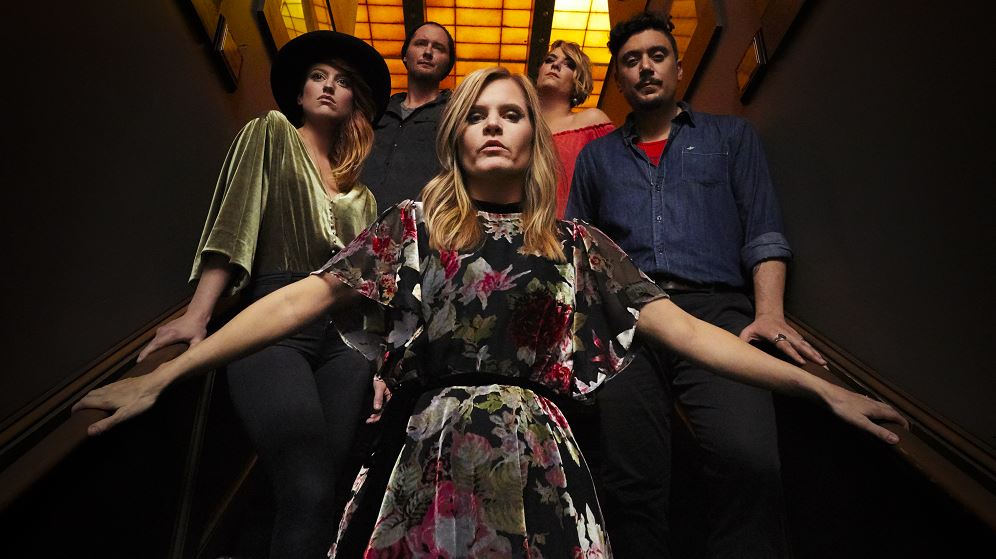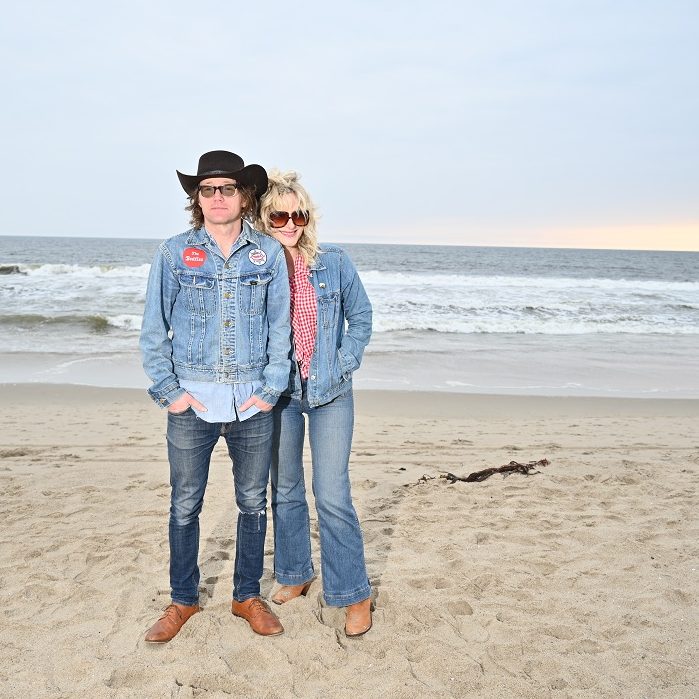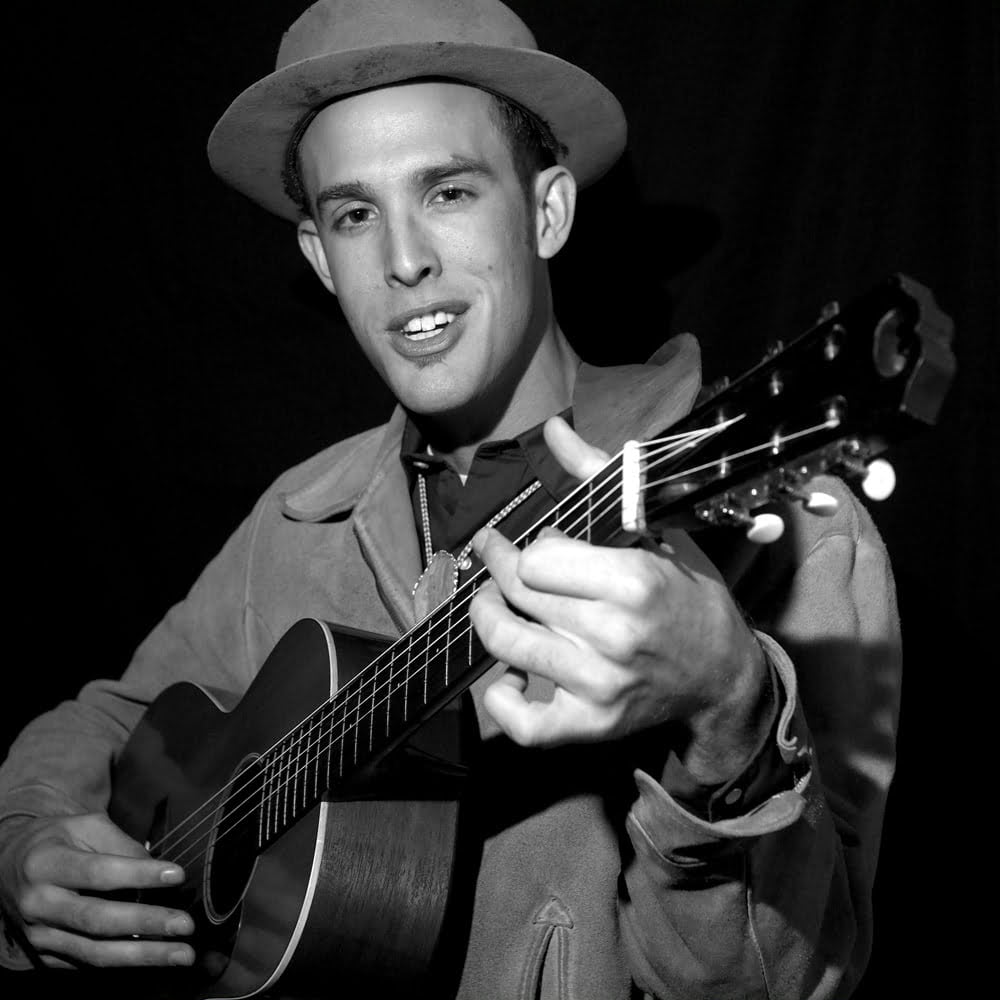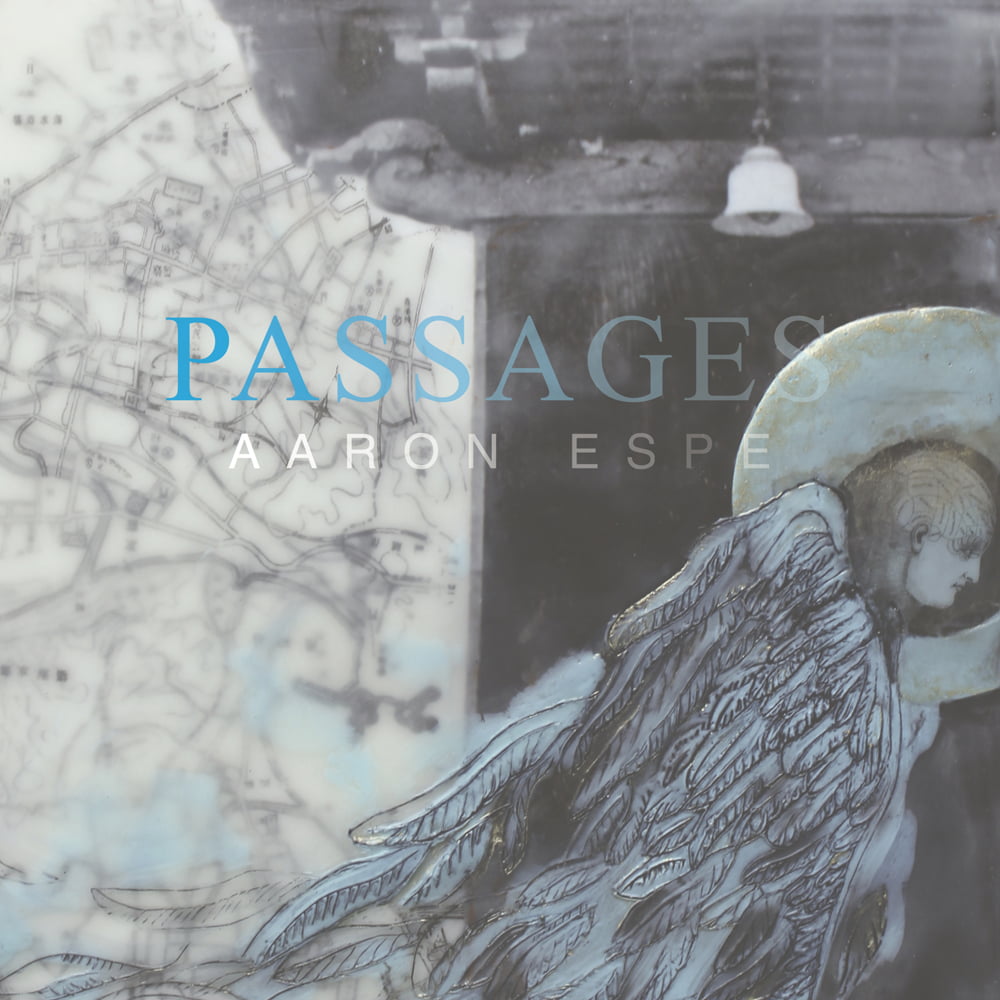Artist: New Reveille
Hometown: Raleigh, North Carolina
Latest album: The Keep
Personal nicknames (or rejected band names): “We never really discussed names, New Reveille is a name I gave the project before it became a band.” – Daniel Cook
What’s your favorite memory from being on stage?
I’d say my favorite New Reveille show was our first, even though I’d slipped on the ice and gotten a concussion about 30 minutes earlier. My wife said it sounded like a watermelon breaking on the ground. I said, “Well maybe it’ll make me better at banjo.” It didn’t. Anyway, one of the main reasons that show stands out was that it was our singer Amy Kamm’s debut performance with a band. We were unsure of how she would like to be in front of a crowd since she had never sung outside of church. But she was an absolute natural. Stunning. The harmonies really got people’s attention and Autumn, George and Kaitlin lit it up as well.
The show was at this cool little venue called Deep South the Bar in our hometown of Raleigh, North Carolina. We had a sold-out crowd and people were singing along with some of our songs, which was really surprising because it was our first show. It was a great feeling for all of us. We had our friends Ryan Jernigan on bass, Dan Blaisdell on pedal steel, and Max Palmer on drums joining us. Eight people squeezed onto a tiny stage. Autumn’s violin bow kept almost taking my eye out. That still happens all the time. I need to stay out of her way when she gets into it.
What other art forms — literature, film, dance, painting, etc. — inform your music?
I’ve been a video editor by trade for about 15 years. I direct sometimes as well. Outside of music, editing is still a passion of mine. It was through music editing that I got into non-linear video editing in college. I realized that it was such a powerful art form. Editors get little recognition, working behind the scenes, but they really have a lot of control over how a film comes together. It’s pretty amazing—the way you’re able to bend and stretch time, find and build moments of tension, play with nuances to create emotional subtext, and sometimes even create an alternate sense of reality—and it never gets old.
It’s not unlike songwriting for me, in that it’s a constant, no-holds-barred experiment. I never really know where I’ll end up when I first sit down with a piece. I think Walter Murch—editor of Apocalypse Now, among many other films—said it best: “Editing is not so much a putting together as it is a discovery of path.” The same applies to songwriting, for me at least. There are time-tested structures and rules. But it’s the discovery of path that excites me and makes me want to keep going. I sometimes say that if I knew what I was doing, I wouldn’t be doing it.
What was the first moment that you knew you wanted to be a musician?
When I was about 14, an encounter with a classical guitarist named Julio interrupted my plans to dominate the NBA. I was down the street playing basketball at a friend’s house when this guy came out and started fingerpicking on the porch. I recognized the tune. It was Nirvana’s “Smells Like Teen Spirit,” but an interesting finger-style interpretation played on a nylon string guitar. I stopped playing mid-game and walked over to him. I asked him some questions, but he didn’t answer. He just smiled and kept playing. I went home that night and said, “Hey Mom, I wanna play guitar.”
My mom told me that my sister had this old toy guitar up the attic. I immediately went up there, brought it down, and started trying to pick out melodies. I remember that I accidentally figured out a single-note version of Tom Petty’s “Free Fallin’” pretty quick. That got me excited. So, being the cart-before-the-horse type that I am, I went and built a “studio” in my Dad’s shed. I made a drum set out of Tupperware, assembled some milk carton maracas, and rounded up some other neighborhood kids who reluctantly agreed to join my new band, which I called “Burnin Snowmen.”
I made an album cover for our cassette tape using construction paper. They disapproved. The band split a few days later, realizing lessons were necessary. But Mom soon got me a good acoustic guitar and I learned a bunch of Lynyrd Skynyrd songs from my uncles who played guitar, which is crazy because Lynyrd Skynyrd are now our labelmates. Funny how things come full circle.
Since food and music go so well together, what is your dream pairing of a meal and a musician?
This is a very interesting question because, as much as I like to eat, and as much as I love music, I can’t recall a single time that I’ve ever watched a show, or even listened intently to a song, while eating. I’ve never even thought about that. Chewing makes noise, so obviously I’m not going to chew while I’m trying to hear a song. I’ll even pull my beanie off my ears to listen, even when the music is really loud and it’s cold outside. I also hate it when people talk over music. There is no such thing as background music as far as I’m concerned.
But now you have me thinking about it. Maybe I should give it a try. Eating and listening. Seems mutually exclusive to me. I really like beef brisket and you’ve caught me at a time when I’m very hungry. And I was just listening to Sylvan Esso. But somehow, I don’t think of brisket when I think of Sylvan Esso. I could eat a brisket at a bluegrass jam. Or something with grease dripping off. But I don’t have access to a brisket or bluegrass band right now so maybe I’ll crank up Foo Fighters and eat a sausage dog.
But next time we go back to Nashville, Amy and George and I will almost certainly go back to Hattie B’s Hot Chicken. Autumn and Kaitlin don’t eat meat. I’m not sure what kind of music I’d eat beans or salad to. You’ve stumped me here, and quite frankly made me hungrier.
How often do you hide behind a character in a song or use “you” when it’s actually “me”?
Oh, I do this all the time. I’d even go as far as to say that when I write in second-person, I’m talking to myself about half the time. It’s usually subconscious, though. I’d say there’s even a little bit of that in “Hounds,” talking about karma or getting what you deserve. So, it’s no surprise that when Amy sings it, I sometimes feel like the antagonist in the song. It’s pretty haunting. But I guess it’s true that writers will often hide their own demons in other characters, even unintentionally. Or sometimes you’re literally just talking to yourself on the page.
For example, “Abide” was sort of a rally cry to myself at the time: “Brace that sand upon your shore, ‘cause hard days are coming Lord.” A similar process happens sometimes when I combine things about myself with things I know about other people in my life to create fictional characters. Again, it’s not intentional. It just happens that way. And I usually only realize it after the fact.
“Miracle” is one that was inspired partially by several people I’d met who had lost children or siblings prematurely, and partially by my own contemplating life and death and trying to find the meaning of it all during a hard time. Where the song finally landed through that “discovery of path” was, in the end it’s all about the love we give while we’re here and the love we leave behind. And when Amy sings that song, it’s special for a lot of reasons that are personal for me as well as her. But yeah, that’s another one where I’m hidden in there, although maybe not as a “you.”
Photo by Jeremy Danger



